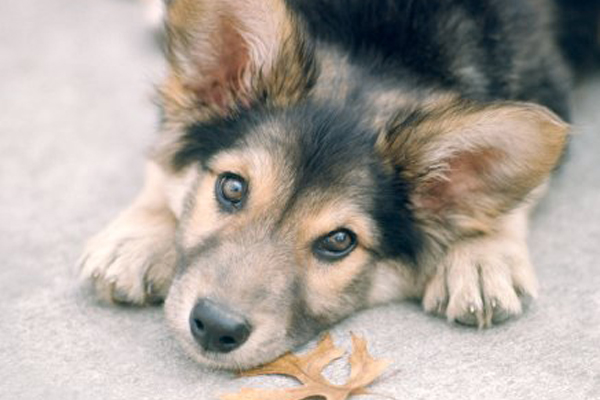The Essentials of Socializing Your Pup
by Joan Harris | Apr 30, 2008

After a long, cold winter, Spring has finally arrived and the streets and sidewalks are bustling with people and their pets anxious to get outdoors to enjoy the weather. Puppy classes reach their peak of enrollment now because this is the optimum time of year to housebreak and socialize a new pup.
What exactly is the purpose of socializing your new family member and why is it so important? I remember when I got my first puppy many years ago before entering the field of canine behavior. I was told to introduce my puppy to something new every day. Training can occur at any time during his life but the development stages only happen once and proper socialization during that period is the most important thing you can do. Be sure to stress your pup a little every day. Take him everywhere you can. Introduce him to all the situations he will have to deal with in the future.
I followed this advice, took my new pup into stores, banks, walked him by school yards, and brought him to all my son’s baseball games. He went to the beach, learned to swim and played in dog parks. We attended puppy class and took long walks. He was the only puppy at 10 weeks of age in an adult agility class. The results were a very confident, well adjusted adult dog who fi t perfectly into my life and could happily accompany me anywhere.
There exists a window of time during a puppy’s development where he is curious and open to new experiences. It is easy for him to approach and investigate new situations with confidence. He forms permanent impressions and social bonds. This is commonly known as his socialization period. During this period, it is important to introduce you pup to new situations, even if he is reluctant or scared, so he can develop the ability to deal with stress. This will increase his overall confidence as an adult.
One way to ensure your puppy is receiving proper socialization is to enroll in puppy class. It is my experience over the years that puppies who attend puppy classes can learn at a rapid rate if the method is right. A good puppy class should have a structured play session. This will not only teach proper social skills but will help your pup acquire bite-inhibition skills. All obedience exercises should be taught with positive reinforcement to ensure the puppy is imprinted properly to cooperate socially.
STAGES
Your puppy will go through many developmental stages on the way to maturity. An understanding of these stages can help you guide your puppy properly.
Human Socialization Period:
- 7 to 12 weeks
- The brain waves of the puppy are the same as a mature dog, but the puppy is a clean slate. This is the age that the most rapid learning occurs and the greatest impact on future social behavior happens. The window of opportunity is closing and socialization is critical. This is a great time to enroll in puppy class but remember your pup’s attention span may be short.
Fear Imprint Period:
- between 8 to 11 weeks
- Anything that frightens the puppy during this period may have a lasting effect. Keep training fun and short. Use gentle guidance and management and continue to socialize.
Seniority Classification Period:
- 10 to 16 weeks
- During this time, your pup will attempt to determine who’s in charge. It is important to provide structure and leadership during this time. I like to call this time the calm before the storm.
Flight Instinct Period:
- 4 to 8 months
- Most calls to obedience schools happen in this stage, when your puppy may really try to test his wings. Just like a teenager going through puberty, your pup may test everything you tell him to do. Enrollment in obedience class may be critical at this time and continued structure and socialization is a must. Your pup may also require additional exercise and stimulation at this time.
Second Fear Period:
- between 6 and 14 months (this period could extend in large breed dogs).
- Many dogs will show a rise in aggression or reactivity during this stage. They may become protective and territorial, and may try to dominate their owners. I have personally noticed that this seems to correspond with rapid periods of growth and can occur several times during a dog’s development. If your pup shows fear or apprehension during this time, avoid confrontation and encourage him to work it out on his own. It is better to ignore the situation than to reinforce the fear by trying to soothe your dog. Build confidence through training.
Somewhere between the ages 1 to 4 years we reach the bittersweet time of maturity. Hopefully, we took enough pictures to remind us of how much fun (although sometimes trying) it was to successfully guide our puppy through the stages of becoming a dog. Now we can enjoy a happy, well-adjusted life-long companion.
